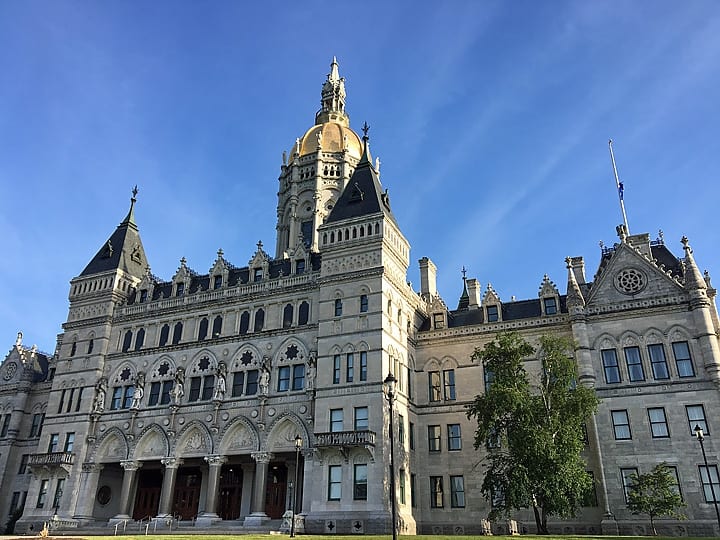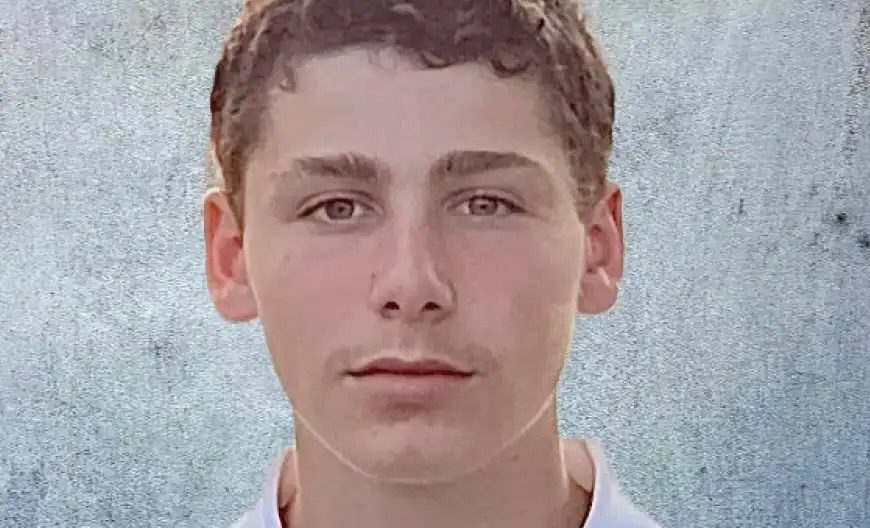Senate Sends iGaming, Sports Betting To Governor [Updated]

Audio By Carbonatix

State Capitol. CTNewsJunkie.com file photo (courtesy)
State Sen. Derek Slap of West Hartford was one of the six senators to vote against the bill.
By Christine Stuart, CTNewsJunkie.com
Ronni Newton, We-Ha.com, contributed to this report
It’s possible that Connecticut residents may be able to place a bet on their phones by Labor Day, but action the Senate took Tuesday is not the final stop for a proposal to expand gambling in Connecticut.
The Senate passed the bill 28 to 6.
Gov. Ned Lamont, who negotiated the deal with the two federally-recognized tribal nations and the Connecticut Lottery, was expected to sign the legislation before it goes to the Bureau of Indian Affairs for approval, and the governor signed it Thursday.
“By signing this bill into law, Connecticut is now on the cusp of providing a modern, technologically advanced gaming experience that will be competitive with our neighboring states and positions us for success into the future,”Lamont said in a statement. “Today, we celebrate the result of months of hard work and dedication toward an agreement that is best for the residents of Connecticut and the respective tribal members. I thank all of the legislators on both sides of the aisle who recognized what this deal means for our state and voted to send this bill to my desk. I also appreciate the partnership of the Mohegan Tribe and Mashantucket Pequot Tribe for collaborating with my office so that we could make this happen for the residents of our state. I am confident that the federal government will see fit to approve these amendments to our compact, and in the coming months we can launch a modernized, 21st century gaming experience in Connecticut.”
The federal government will have to sign off on the changes to the tribal compacts with the Mashantucket Pequots and the Mohegan Tribal Nation.
Sen. Cathy Osten, who was named co-chair of the Public Safety & Security Committee following the arrest of Sen. Dennis Bradley, says off-reservation the two tribes will be to do online casino games and online fantasy contests.
“Connecticut has been working toward this comprehensive update over the last four legislative sessions,” Osten said.
She said it modernizes the regulatory structure and allows the governor to amend the compacts.
The exclusivity that the tribes have over gambling is partly why it’s taken so long to get an agreement.
“We operate gaming with two of the largest casinos at our two sovereign nations that have set a standard of gaming in New England,” Osten said.
The Connecticut Lottery will also be allowed to do online and sports betting, in addition to opening 15 retail locations, including specifically one in Hartford and one in Bridgeport.
The state of Connecticut will get a cut of those gambling revenues. iGaming will come with a 18% tax rate for the first five years and then increase to 20% for the remainder of the 10 year deal. The state will get 13.75% on sports wagering on gross gaming revenue.
The bill also requires the two tribes to contribute $500,000 toward problem gambling and the Lottery will increase its contribution by $1 million to $3 million.
Osten said they built provisions into the bill to make the apps used to place bets on the phone less addictive.
“There will be no betting on state college sports,” Osten said.
Sen. Tony Hwang, R-Fairfield, said there’s a societal cost to expanding gambling.
Hwang said the addiction rate for online and sports gambling is much higher than in-person gambling at casinos.
Sen. Derek Slap, D-West Hartford, cast one of the votes against the measure.
“I really struggled with it,” he said, and while the arguments in favor of the bill were straightforward, and the state stands to earn revenue, Slap said he had to vote his conscience.
“Ultimately I think that bill will ruin some people’s lives,” Slap said, and exacerbate an existing mental health crisis, and he didn’t want to be part of that.
He said research shows gambling addiction has become even more of a problem in places where there is online gaming authorized, and while the average rate of play in a casino is 30 games per hour, online it’s 80 games per hour, enabling people to lose a lot of money really quickly.
“If you’re a recovering gambler, if it’s online, on your phone, on the computer, it’s so much more difficult to stay away,” said Slap. “I think it’s a recipe for disaster. … I couldn’t find a way to be okay with it.”
There was also opposition from lawmakers who represent East Windsor.
The negotiated deal prevents the East Windsor casino from being built for the next 10 years.
“In my opinion this is wrong,” Sen. Saud Anwar, D-South Windsor, said.
He said the town had to learn about it through a Facebook post and not through the governor’s office. The tribes had invested $20 million in the old Showcase Cinemas off I-91 to build a casino to compete with the new MGM casino in Springfield, MA.
Republished with permission from CTNewsJunkie.com, all rights reserved.
Like what you see here? Click here to subscribe to We-Ha’s newsletter so you’ll always be in the know about what’s happening in West Hartford! Click the blue button below to become a supporter of We-Ha.com and our efforts to continue producing quality journalism.



